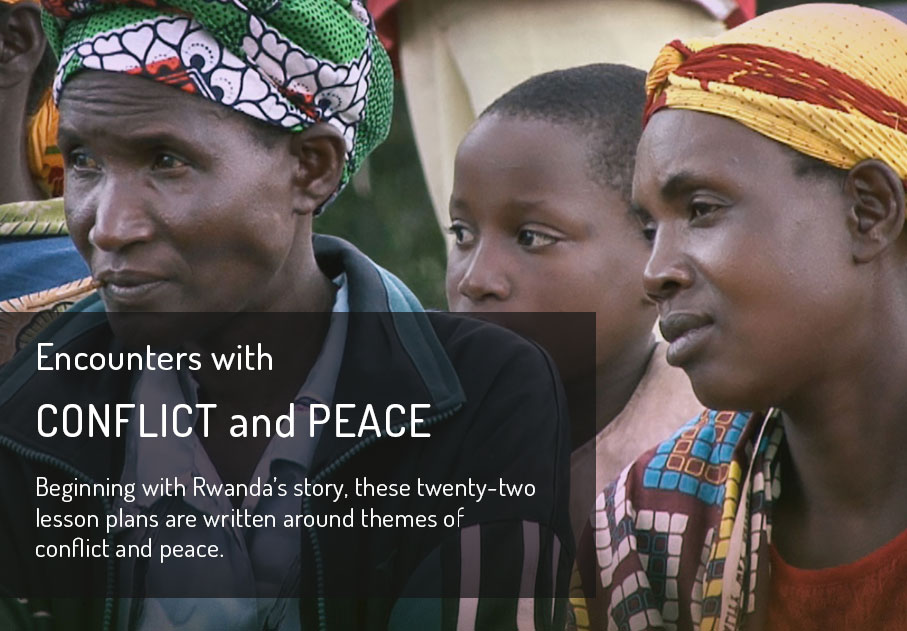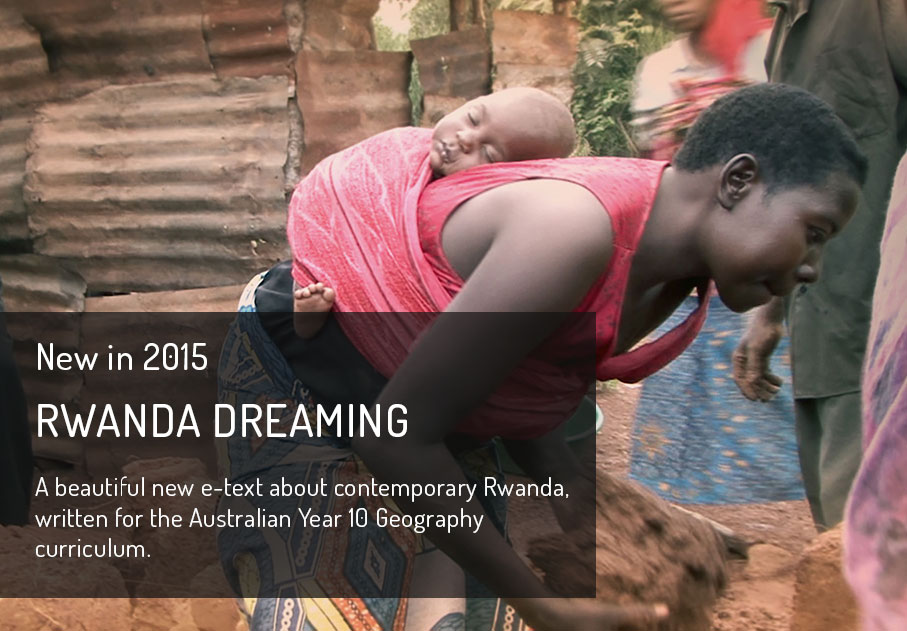Vanishing Point’s curriculum resources cover two general themes:
Encounters with Conflict and Peace and the Geographies of Human Wellbeing.
Encounters with Conflict and Peace is a set of lesson plans for teachers which tie in with the RwandanStories.org website. They begin with the 1994 genocide and its aftermath, then open out to look at the origins of conflict in any society, and the processes of recovery and rebuilding.
The Geographies of Human Wellbeing unit is covered in a new e-text for students called ‘Rwanda Dreaming’. It’s a positive and colourful look at Rwanda’s remarkable progress in the 21st century, and in particular their home-grown solutions for dealing with the legacy of genocide.


About the lessons
THESE RESOURCES will help you deliver high-impact lessons on conflict and peace within the mainstream school curriculum. They engage students students with high-level critical thinking. They’re suitable for use in global education, history, psychology, English, legal studies, social/values education, geography and social sustainability.
They’re based on the award-winning website www.rwandanstories.org which takes a close-up look at Rwanda’s remarkable history through film, photography and journalism. The personal encounters with survivors and perpetrators challenge students to think through the ideas which either lead to conflict or build peace.
The lessons come with a detailed lesson plan and beautifully formatted sets of presentation slides and handout sheets ready for printing or photocopying. We think you’ll find they help you deliver engaging lessons without lots of preparation.
Find out moreAbout the e-book
‘RWANDA DREAMING’ IS A ‘HUMAN GEOGRAPHY’ LOOK at Rwanda’s last twenty-one years. Two decades after genocide, Rwandans are creatively shaping a society and country that is uniquely their own.
This Education Edition includes a wide range of student activities which explore innovative, creative and flexible solutions to complex problems.
It covers Rwanda’s strategies in justice, health, education, poverty, social cohesion and the environment, and includes regional comparisons with Australia, especially indigenous Australia, and post-genocide Cambodia.
In stable societies, human wellbeing can be a fuzzy concept. By using the case study of a country forced to re-build from scratch, Rwanda Dreaming shows how dynamic the elements of human wellbeing can be in people’s lives.
Find out moreOn the resources...
“This resource addresses important issues of forgiveness, reconciliation, racism, bullying, conflict and healing that are at the centre of what it means to be human.”
Rod YuleGlobal Education, World Vision
On Rwanda Dreaming...
“I really love this book! It’s easy to read, with beautiful graphics and lots of statistics. Covers everything you need to know about contemporary issues in Rwanda.”
Laura RurangwaEnvironmental scientist, Rwanda
